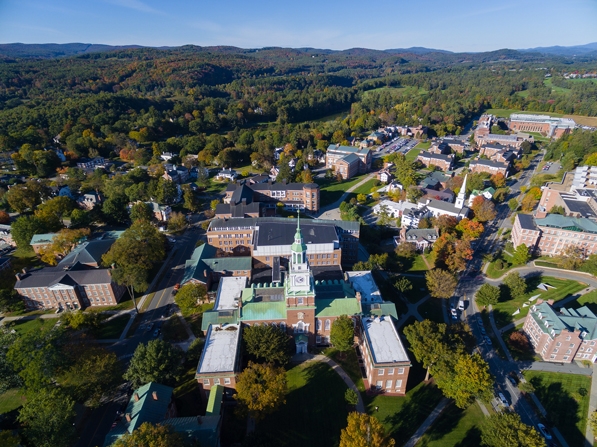The transition to an administratively independent School of Graduate and Advanced Studies at Dartmouth will be discussed at three town meetings, the first of which is set for next week.

(Photo by Eli Burakian ’00)
The sessions will take place on Oct. 21, at 5 p.m., in room 003 in the Nelson A. Rockefeller Center for Public Policy; Nov. 4, at 4 p.m., in Auditorium H at the Dartmouth-Hitchcock Medical Center; on Nov. 9, at 4 p.m., in the Life Sciences Center, room 201.
An independent graduate school was among the recommendations in the College’s last strategic planning process and was embraced by President Phil Hanlon ’77 shortly after he took office in 2013.
“I’m delighted to see progress on this issue and look forward to learning more,” says William Wohlforth, the Daniel Webster Professor of Government and a strategic planning committee member. “Properly designed and supported, an independent graduate school has the potential not only to help Dartmouth up its research game, but also to help expose more undergrads to the world of research.”
A year ago, Provost Carolyn Dever convened a task force of 12 faculty members from across the institution, chaired by Graduate Studies Dean Jon Kull ’88, to investigate how to move from the current structure to an independent graduate school. The group put together a report containing recommendations which will be discussed at the meeting.
“Establishing a School of Graduate and Advanced Studies demonstrates Dartmouth’s commitment to research at the highest level. It will increase national and international awareness of the quality and impact of Dartmouth’s research programs, and allow it to continue to attract the strongest faculty, postgraduate scholars, and undergraduates,” says Kull.
The report recommends that the new school would report to the provost and would include support of postdoctoral scholars. Other recommendations include consolidating all Dartmouth graduate fellowships and their funding in the new school, and more fully integrating graduate and postdoctoral scholars into the College community, increasing opportunities for mentorship with undergraduates.
The existing graduate programs offer masters and PhD degrees in nearly two dozen programs. Approximately 770 PhD, MS, and MA students are currently enrolled at Dartmouth.
“This is an extremely exciting time to be a graduate student at Dartmouth. The town hall meetings offer an opportunity for current students to voice their questions hopes for the School of Graduate and Advanced Studies. Every Arts and Sciences graduate student has a stake in how that turns out,” says Graduate Student Council President Erin Brioso.
After the town hall sessions, the next step is to continue formal discussions with the faculties of Arts and Sciences, the Geisel School of Medicine, Thayer School of Engineering, and the Tuck School of Business, says Kull. The new school could be in place as early as July 1, he said.

